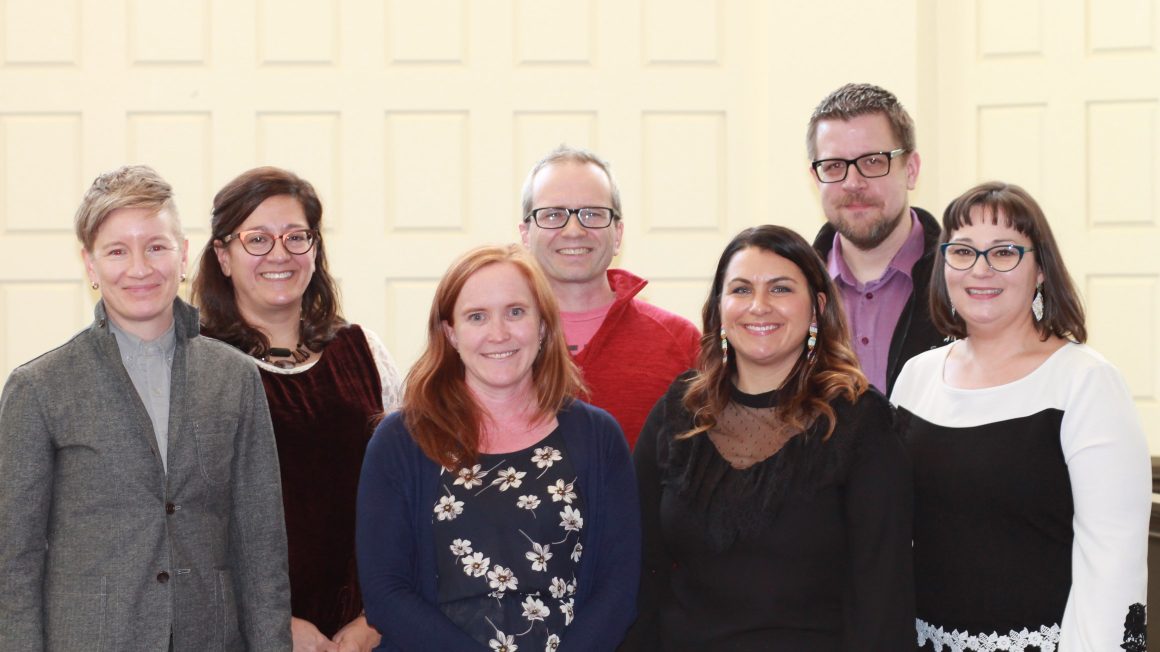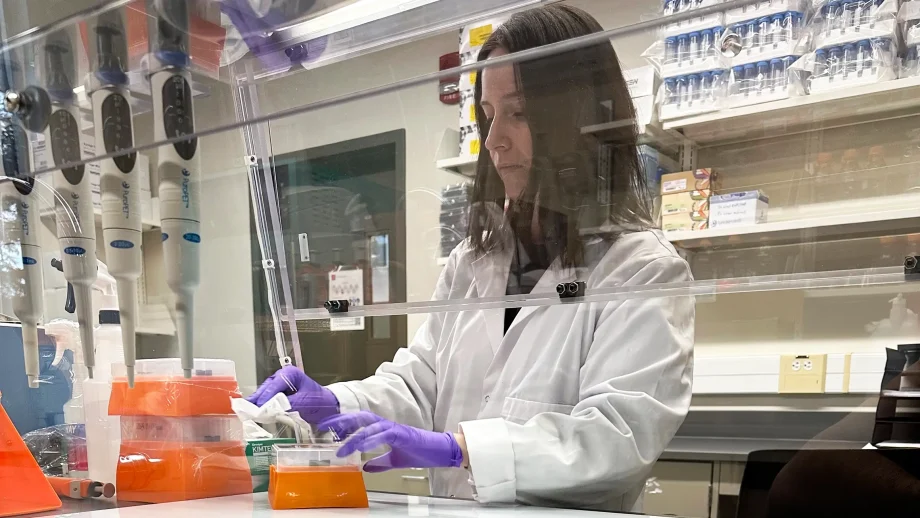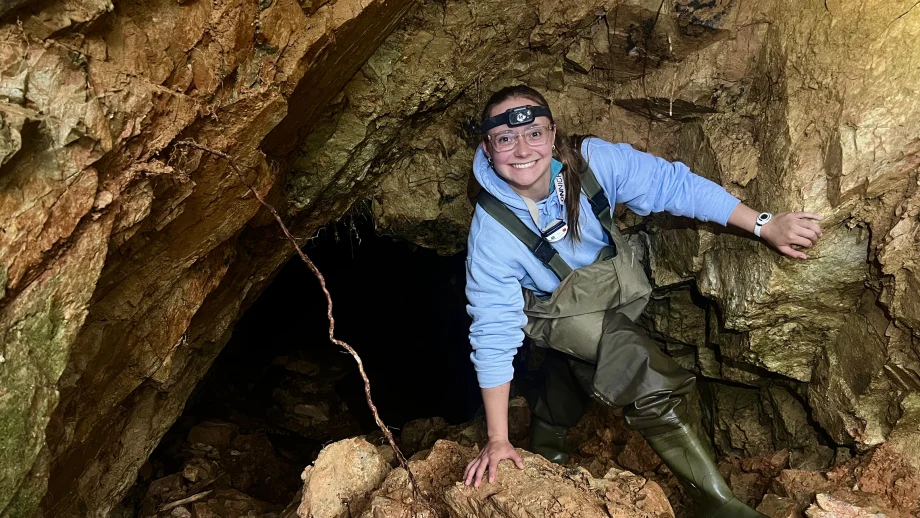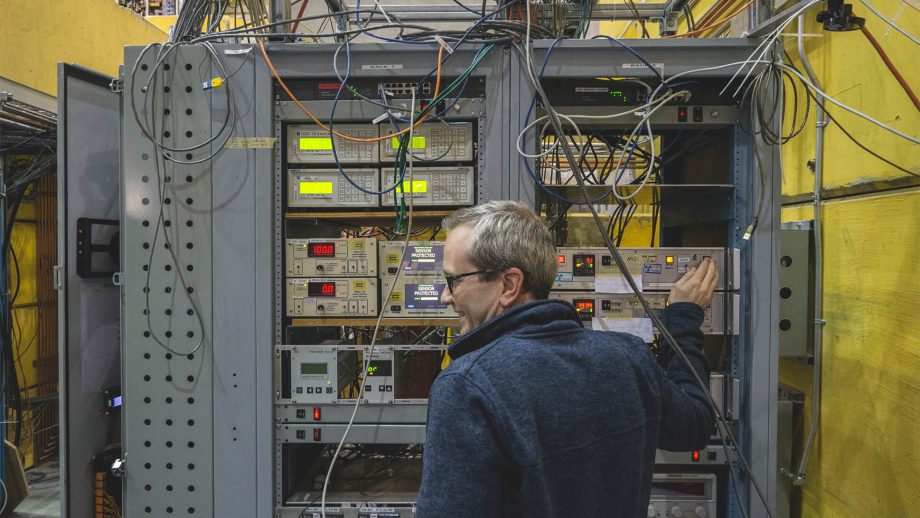The University of Winnipeg’s research funding has more than doubled in the past six years, growing from $6,187,482 in 2015 to $14,690,109 in 2021.
“I am proud of the fantastic growth in research funding we’ve seen in recent years. It has surpassed expectations,” said Vice-President of Research and Innovation Dr. Jino Distasio. “This increased research funding has paved the way for some really innovative projects that are helping solve complex problems and shed light on key issues.”
When we support our faculty in their research and scholarly work, it has a huge economic and social impact.
Dr. Jino Distasio
UWinnipeg is home to a diverse faculty that includes eight Canada Research Chairs. Research is also supported by postdoctoral researchers, research associates and assistants, all who are involved in cutting-edge, collaborative work that has put the University of Winnipeg on the map, not just in Manitoba but across Canada and internationally.
This opens doors for UWinnipeg students to take part in cutting-edge research. Some have even published their work in academic journals.
Cain Kiddell, valedictorian at this year’s Education convocation, is a great example of this. During his undergrad, he worked as a research assistant in Dr. Ed Cloutis’s Centre For Terrestrial and Planetary Exploration. In this role, he engaged in field research locally and internationally and was first author on a research article in The Journal of Geophysical Research, and co-author of research articles in Icarus and The Astronomical Journal.
Looking back over the past few years, Distasio finds it interesting that the increased funding is not limited to one specific area.
There has been steady growth in tri-council funding (CIHR, NSERC, and SSHRC), Canada Research Chair funding, Canadian Foundation for Innovation (CFI) funding, and external partnerships such as Research Manitoba and others.
This has enabled the university to spearhead research in a wide range of disciplines, from increasing our understanding of quantum magnets, to investing in doula programs supporting urban Indigenous women, to developing innovative new MRI techniques, confronting critical climate change issues, restoring prairie grasslands, and more.
To support the continuing success of UWinnipeg’s research programs, Dr. Jaime Cidro – Canada Research Chair in Health and Culture and co-director of the Aabijijiwan Indigenous Research Lab – was appointed to the role of Associate Vice-President, Research and Innovation in early 2021.
“We anticipate that our growth in research will only continue as the University continues to hire new faculty with exciting programs of research,” said Cidro. “Supporting our early career researchers along with our more established researchers is of critical importance to the Research Office.”
World-class researchers
“Despite a difficult year navigating a pandemic, UWinnipeg researchers have continued to attract significant funding while adapting to working within the challenges of restricted activities on campus,” said Distasio.
He is especially proud of the diversity of UWinnipeg’s Canada Research Chairs, three of whom are female Indigenous scholars. This is above the national average where 37.6% of chairs are women and only 3.2% are Indigenous.
“As part of the University’s commitment to strengthening Indigenous scholarship and research, a deliberate decision was made to exceed the the requirements of the Canada Research Chair Program to ensure strong Indigenous representation,” said Distasio.
UWinnipeg’s eight Canada Research Chairs are world-class scientists and scholars from diverse backgrounds who are working on new discoveries and innovations that help our environment, health, communities and economy thrive. The number could soon grow with the pending reallocation of Canada Research Chairs in the year ahead.
Distasio says first and foremost it is our faculty who have led this tremendous growth. This has been supported with significant investments in the university’s research infrastructure.
“When we support our faculty in their research and scholarly work, it has a huge economic and social impact,” he said. “Our researchers are world renowned in their fields and their work is making a significant impact on our community. It is really exciting to see where this steady and continuous growth is taking us.”





